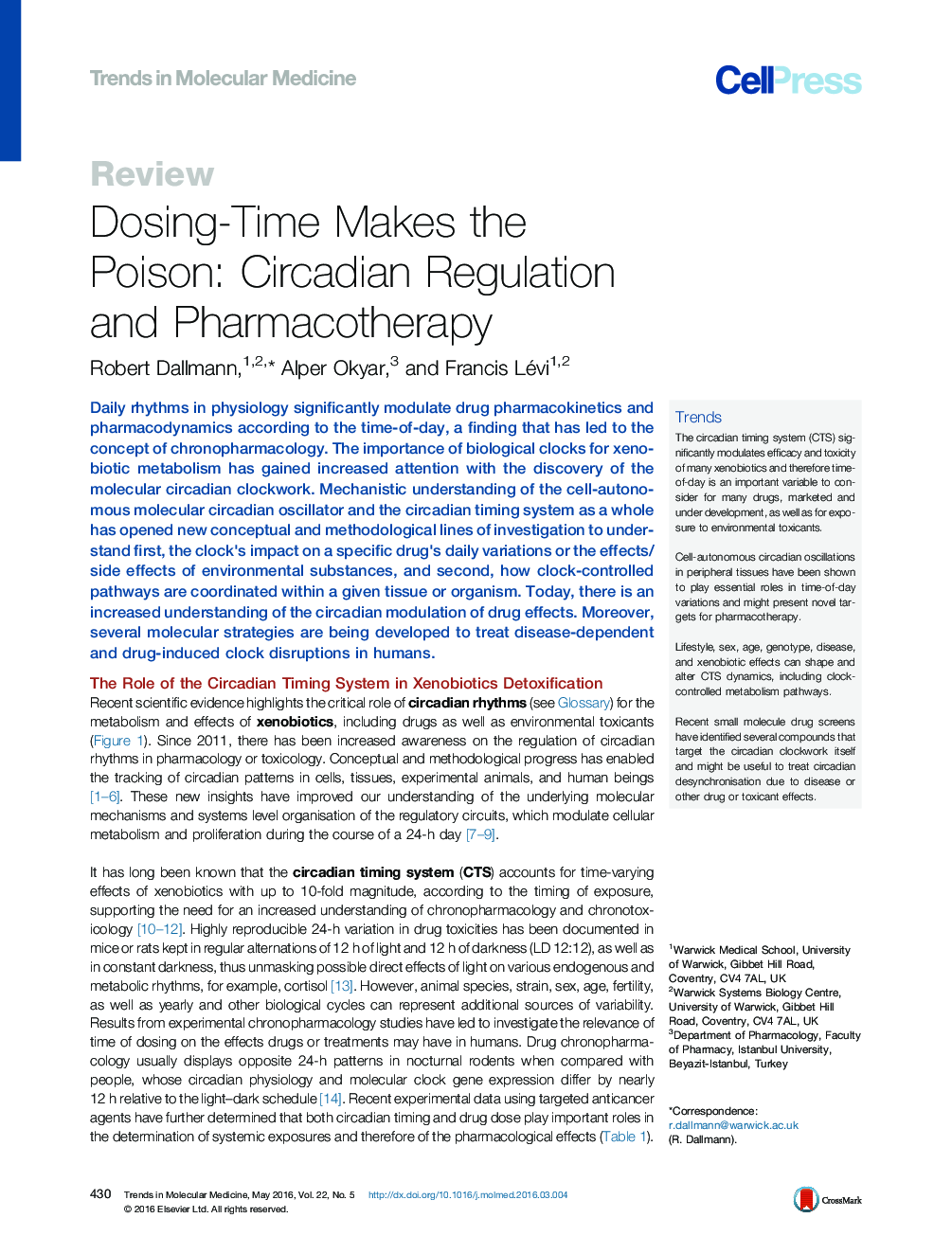| Article ID | Journal | Published Year | Pages | File Type |
|---|---|---|---|---|
| 2838365 | Trends in Molecular Medicine | 2016 | 16 Pages |
Daily rhythms in physiology significantly modulate drug pharmacokinetics and pharmacodynamics according to the time-of-day, a finding that has led to the concept of chronopharmacology. The importance of biological clocks for xenobiotic metabolism has gained increased attention with the discovery of the molecular circadian clockwork. Mechanistic understanding of the cell-autonomous molecular circadian oscillator and the circadian timing system as a whole has opened new conceptual and methodological lines of investigation to understand first, the clock's impact on a specific drug's daily variations or the effects/side effects of environmental substances, and second, how clock-controlled pathways are coordinated within a given tissue or organism. Today, there is an increased understanding of the circadian modulation of drug effects. Moreover, several molecular strategies are being developed to treat disease-dependent and drug-induced clock disruptions in humans.
TrendsThe circadian timing system (CTS) significantly modulates efficacy and toxicity of many xenobiotics and therefore time-of-day is an important variable to consider for many drugs, marketed and under development, as well as for exposure to environmental toxicants.Cell-autonomous circadian oscillations in peripheral tissues have been shown to play essential roles in time-of-day variations and might present novel targets for pharmacotherapy.Lifestyle, sex, age, genotype, disease, and xenobiotic effects can shape and alter CTS dynamics, including clock-controlled metabolism pathways.Recent small molecule drug screens have identified several compounds that target the circadian clockwork itself and might be useful to treat circadian desynchronisation due to disease or other drug or toxicant effects.
